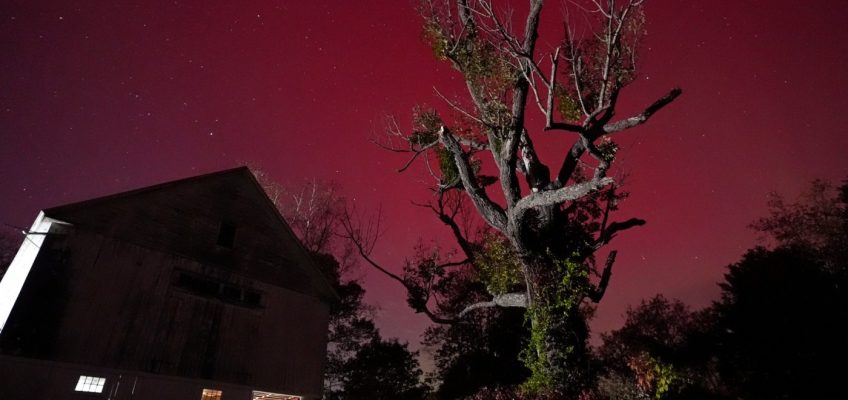By Adithi Ramakrishnan, AP Science Writer
NEW YORK (AP) — Expect to see more northern lights in unusual places as the sun continues to sizzle, space weather forecasters said Tuesday.
Strong solar storms this year have triggered shimmering auroras much farther south than usual, filling skies with hues of pink, purple, green and blue.
The sun is currently at the maximum phase of its 11-year cycle, making solar surges and northern lights more frequent. This active period was expected to last for at least another year, though when solar activity will peak won’t be known until months after the fact, according to NASA and the U.S. National Oceanic and Atmospheric Administration.
An aurora borealis, also known as the northern lights, is seen in the night sky along with the Big Dipper constellation on Thursday, Oct. 10, 2024, in Moscow, Idaho. (AP Photo/Ted S. Warren)
This solar cycle has yielded more colorful auroras farther south and more are likely, said NASA’s Kelly Korreck.
“We still could possibly get some good shows in the next few months,” she said.
Such storms can also temporarily disrupt power and communications. Ahead of a solar outburst, NOAA would alert operators of power plants and spacecraft in orbit.
In May, NOAA issued a rare severe geomagnetic storm warning. The storm that slammed Earth was the strongest in more than two decades, producing light displays across the Northern Hemisphere. That same month, scientists recorded the biggest flare erupting from the sun, but Earth was out of the way.
Previous solar cycles have produced storms more intense than May’s so space forecasters are keeping a close eye on the sun to prepare for any major disruptions, said NOAA’s Bill Murtagh.
Last week, a powerful solar storm dazzled skygazers far from the Arctic Circle when auroras appeared in unexpected places including Germany, the United Kingdom, New England and New York City.
The Associated Press Health and Science Department receives support from the Howard Hughes Medical Institute’s Science and Educational Media Group. The AP is solely responsible for all content.


Leave a Reply